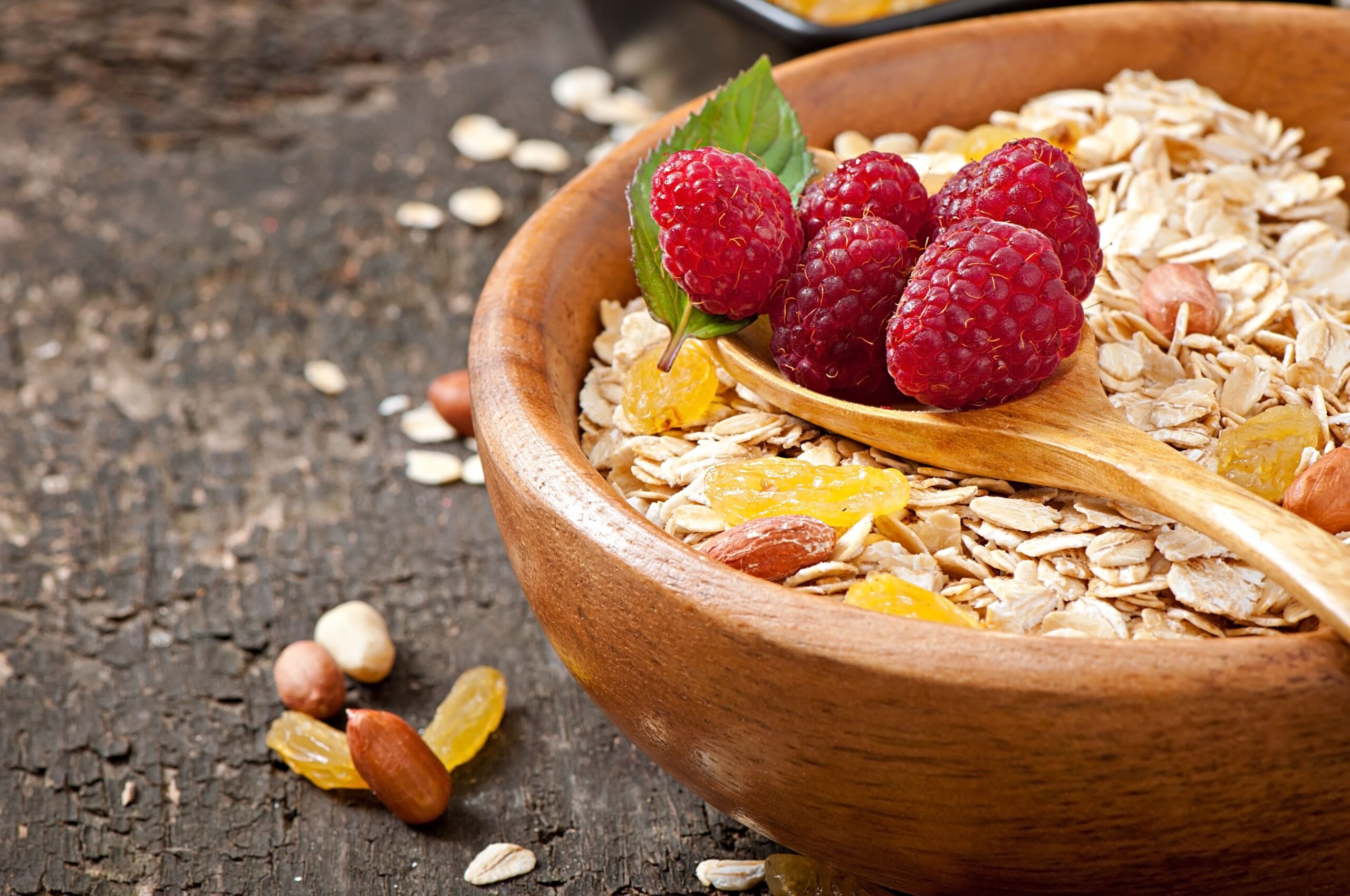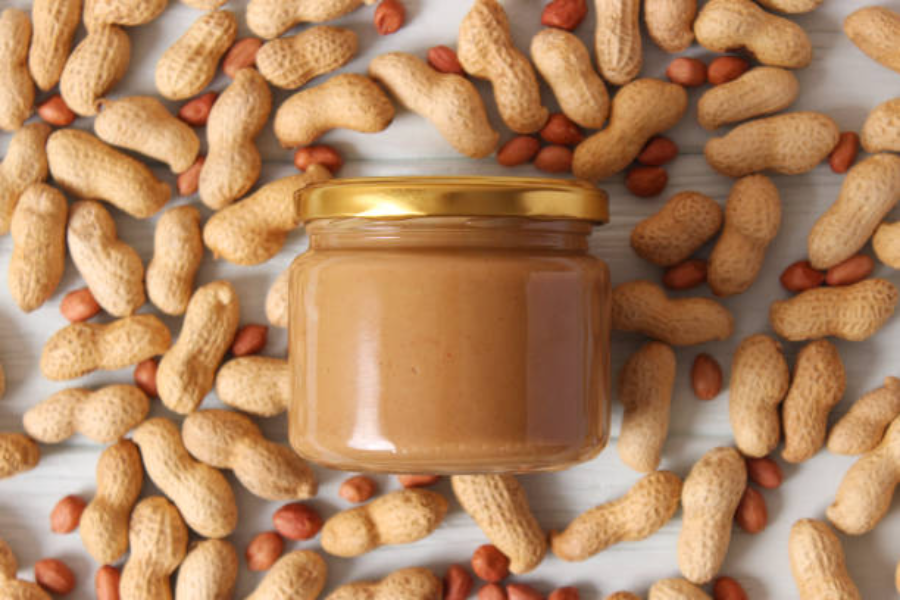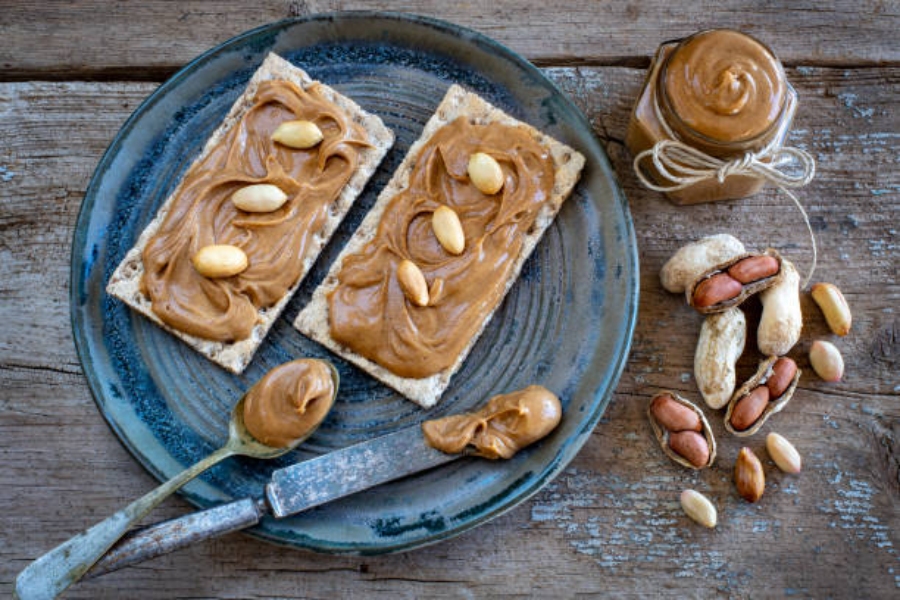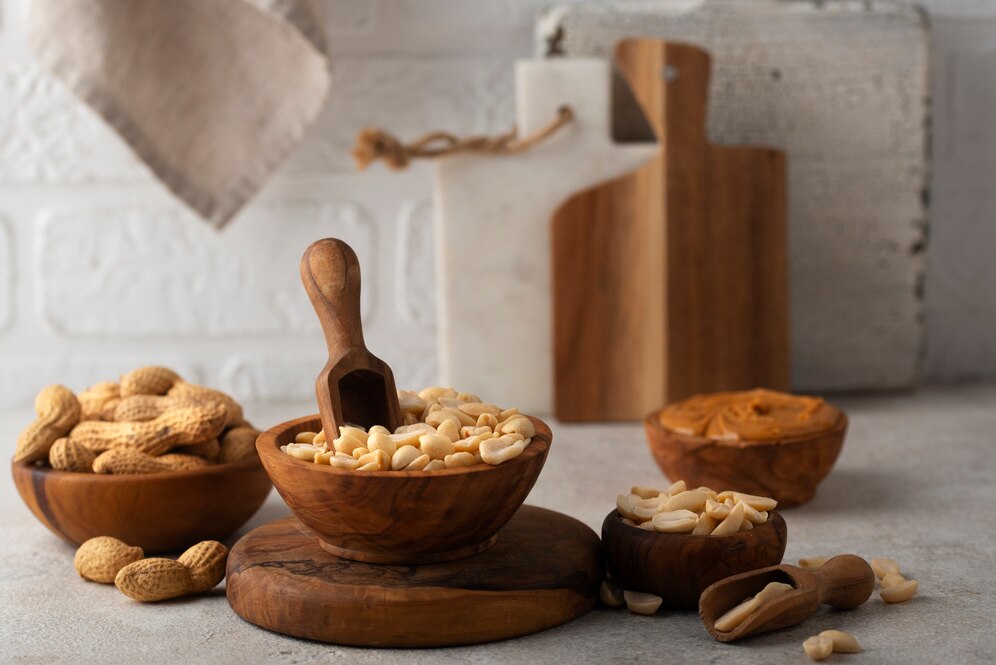
How Does Fibre Help in Digestion?
Fibre is found in plant-based foods. It is a carbohydrate, but unlike other carbohydrates, it cannot be broken down by the body. However, they play an important role in digesting our food. Consuming meals that are high in fibre can also reduce the risk of diabetes, heart disease and some forms of cancer. Let us learn more about how fibre can help in digestion:
What is Fibre?
Fibre is also known as bulk or roughage. These are indigestible portions of a plant. In contrast to other meal ingredients like lipids, proteins, or carbs, which your body processes and absorbs, fibre is not broken down by the body. Rather, it exits your body through your colon, small intestine and stomach – mostly undamaged.
There are two types of fibre: soluble and insoluble. Both types contribute to digestive health in different ways.
Soluble Fibre
Soluble fibre dissolves in water and forms a gel-like substance. It slows down the digestion process and helps the body absorb nutrients more gradually. This can help in maintaining steady blood sugar levels and promoting heart health. Foods like oats beans apples and carrots are rich in soluble fibre.
Insoluble Fibre
Insoluble fibre does not dissolve in water. Instead, it adds bulk to the stool and helps food pass more quickly through the stomach and intestines. This type of fibre helps prevent constipation and promotes regular bowel movements. Whole grains, vegetables, and nuts are great sources of insoluble fibre.
1. Promotes Regular Bowel Movements –
Fibre adds bulk to the stool, making it easier to pass through the intestines. This helps prevent constipation and ensures regular bowel movements. Regularity is crucial for maintaining a healthy digestive system and preventing discomfort or bloating.
2. Prevents Constipation and Diarrhoea –
Fibre works to balance digestion. Insoluble fibre speeds up the passage of food, preventing constipation, while soluble fibre absorbs excess water, helping to prevent diarrhoea. This balancing act promotes a healthy stool consistency and prevents digestive issues.
3. Supports Healthy Gut Bacteria –
Fibre acts as a prebiotic, meaning it serves as food for the beneficial bacteria in the gut. These bacteria break down fibre and produce short-chain fatty acids, which contribute to a healthier gut environment, reduce inflammation, and enhance the immune system.
4. Reduces the Risk of Digestive Disorders –
A diet rich in fibre lowers the risk of developing digestive conditions such as diverticulitis, irritable bowel syndrome, and haemorrhoids. Fibre keeps the colon healthy by preventing strain during bowel movements and reducing pressure in the digestive tract.
5. Promotes Satiety and Weight Management –
Fibre helps you feel full for longer periods, reducing hunger and preventing overeating. Soluble fibre, in particular, slows down digestion and helps regulate appetite, making it an important factor in maintaining a healthy weight. By promoting satiety, fibre aids in weight management and can support healthy eating habits.
6. Regulates Blood Sugar Levels –
Soluble fibre slows the absorption of sugar into the bloodstream, which can help prevent spikes in blood sugar levels. This is particularly beneficial for individuals with diabetes or those at risk of developing the condition. A diet high in fibre helps in managing blood sugar more effectively.
7. Improves Heart Health –
Fibre, especially soluble fibre, plays a key role in lowering cholesterol levels. By binding with cholesterol particles in the digestive system, fibre helps remove them from the body, lowering the risk of heart disease. Regular consumption of fibre-rich foods is linked to a lower risk of cardiovascular diseases.
8. Detoxifies the Body –
Fibre aids in the elimination of toxins from the digestive system. As fibre passes through the intestines, it helps trap harmful compounds like excess hormones and cholesterol, ensuring they are removed from the body. This detoxification process supports overall health.
9. Promotes Healthy Skin –
By eliminating toxins and waste efficiently, fibre may also contribute to clearer and healthier skin. When the digestive system functions properly and waste is removed regularly, it can help prevent skin issues related to poor digestion, such as acne or inflammation.
butter powder into your daily routine can help you achieve your nutritional goals while enjoying the delicious taste and countless health benefits it provides.
Negative Impacts of Consuming Less Fibre
1. Constipation:
Fibre adds bulk to the stool, making it easier to pass. When fibre intake is too low, stools become smaller, harder, and drier, leading to constipation. This can cause discomfort, bloating, and straining during bowel movements. Chronic constipation may lead to more serious issues like anal fissures or haemorrhoids due to increased pressure on the rectum.
2. Digestive Disorders:
Fibre helps keep the digestive system running smoothly. A lack of fibre slows down the passage of food through the intestines, which can lead to the development of digestive conditions like diverticulosis (small pouches forming in the intestinal walls), irritable bowel syndrome (IBS), and haemorrhoids. These disorders cause symptoms like pain, cramping, and irregular bowel movements, significantly affecting quality of life.
3. Poor Gut Health:
Fibre acts as food for beneficial gut bacteria, which are crucial for maintaining a healthy digestive environment. A low-fibre diet reduces these good bacteria, leading to an imbalance in the gut microbiome. This imbalance can cause inflammation, digestive discomfort, and may increase the risk of infections or chronic conditions like irritable bowel disease (IBD).
4. Weight Gain:
Fibre promotes feelings of fullness, helping to control hunger and prevent overeating. Without enough fibre, you may feel hungry more often and consume more calories throughout the day. This can contribute to weight gain and obesity over time, as low-fibre foods tend to be less filling and often high in sugar or fat.
5. Increased Cholesterol and Blood Sugar Levels:
Soluble fibre binds with cholesterol particles and helps remove them from the body. Without sufficient fibre, cholesterol levels may rise, increasing the risk of heart disease. Additionally, fibre slows the absorption of sugar into the bloodstream, preventing spikes in blood sugar levels. A low-fibre diet may lead to fluctuations in blood sugar, raising the risk of developing type 2 diabetes.
6. Sluggish Digestion:
A low-fibre diet can slow the entire digestive process. Without adequate fibre to move food efficiently through the intestines, digestion becomes sluggish, leading to discomfort, bloating, and a feeling of heaviness.
7. Increased Risk of Colon Cancer:
Fibre helps cleanse the digestive tract and remove waste from the body. Without it, harmful substances may stay in the colon for longer periods, increasing the risk of developing colon cancer over time. Fibre’s role in regular bowel movements helps reduce this risk.
8. Nutrient Absorption Issues:
Fibre-rich foods like fruits, vegetables, and whole grains also contain essential vitamins and minerals. A low-fibre diet often coincides with a lack of these nutrient-rich foods, leading to deficiencies in important nutrients like vitamins A, C and magnesium.
9. Higher Risk of Gallstones and Kidney Stones:
Low-fibre diets can increase the risk of developing gallstones and kidney stones. Fibre helps control cholesterol levels and promotes healthy bile production, which aids in the prevention of gallstones. Inadequate fibre intake may also lead to changes in urinary composition, which increases the risk of kidney stones.
Hydration and Fibre
Staying hydrated is essential when increasing fibre intake, as water helps fibre move efficiently through the digestive system. Fibre absorbs water, making stools softer and easier to pass. Without adequate hydration, fibre can have the opposite effect, causing bloating, discomfort, or even constipation. Drinking plenty of water alongside a fibre-rich diet ensures smoother digestion and enhances fibre’s ability to cleanse the digestive tract. A good balance of fibre and hydration not only supports gut health but also promotes overall well-being by maintaining regular bowel movements and preventing digestive discomfort.
The Process of Digestion with Fibre
When you eat fibre, it first passes through the mouth where it is broken down into smaller pieces by chewing. In the stomach, it mixes with stomach acids and enzymes, but it remains largely intact. Once it reaches the small intestine, the soluble fibre starts to dissolve in water and slow down the absorption of nutrients. The insoluble fibre continues to add bulk to the stool.
As the fibre moves into the large intestine, it begins to ferment and feeds the beneficial bacteria present in the gut. These bacteria break down the fibre and produce compounds that contribute to digestive health. Finally, the remaining fibre helps form the stool and passes out of the body during a bowel movement.
How Much Fibre is Needed
The amount of fibre needed depends on factors like age, gender and overall health. However, general guidelines suggest that women should aim to consume about 25 grams of fibre per day while men should aim for around 38 grams. It is important to increase fibre intake gradually to prevent bloating or discomfort.
Best Kinds of Fibre to Consume
1. Whole Grains
Whole grains like brown rice oats quinoa and barley are excellent sources of insoluble fibre. They help in adding bulk to the stool and speeding up digestion.
2. Fruits and Vegetables
Fruits like apples, pears, berries, and vegetables such as broccoli, carrots and spinach provide both soluble and insoluble fibre. These foods also offer essential vitamins and minerals.
3. Legumes
Beans, lentils and chickpeas are rich in soluble fibre, which slows digestion and helps regulate blood sugar levels.
4. Nuts and Seeds
Almonds, chia seeds and flaxseeds are packed with fibre and healthy fats that aid digestion and promote gut health.









